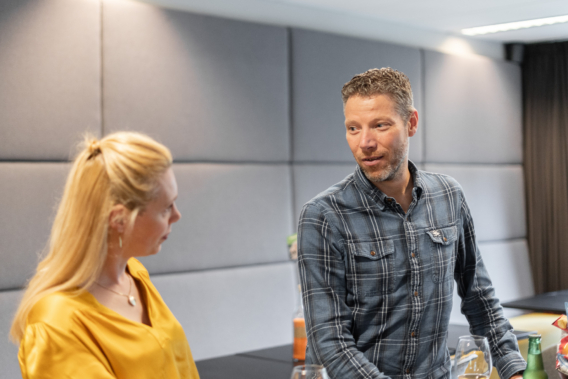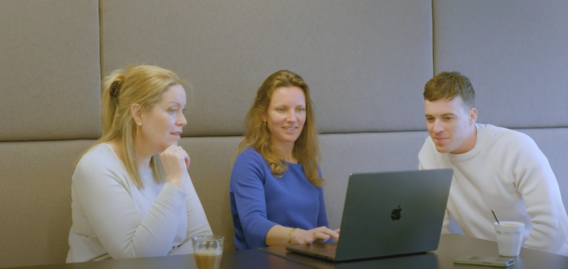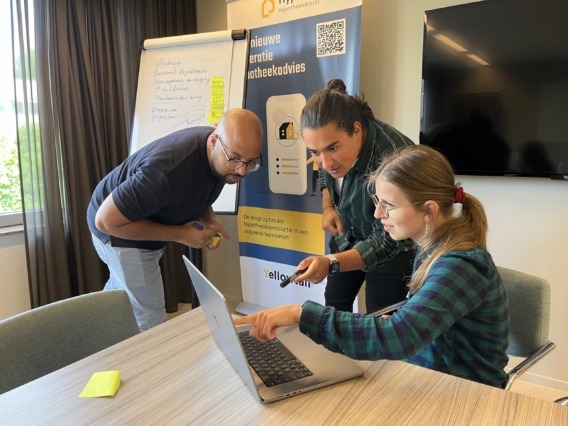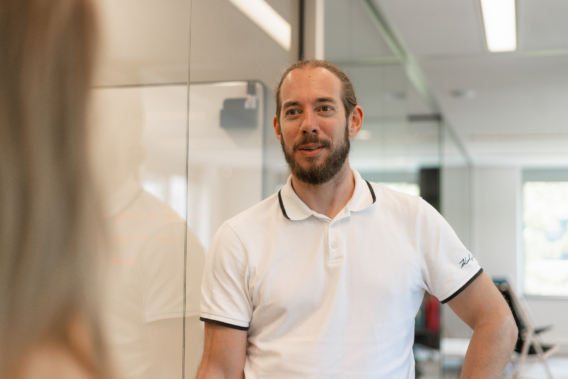Bottom line
Bira: ‘Mortgage advice still looks at how much someone can borrow based on their gross income. A great basis, but it doesn’t provide the complete picture. It is much more valuable to look at net financial behaviour: is someone living extravagantly or does he or she have a lot left at the end of the month? By including the spending pattern in the calculations, a more detailed and clearer picture of someone’s financial situation is created, now and in the future. Especially in these times, it is important to have insight into what someone has left at the bottom line. At the moment someone wants to take out a mortgage, but also afterwards in the management phase. But we are not there yet.’ Georgette: ‘BLG Wonen has been advocating a customer-oriented approach for some time now. In addition to Loan-to-Income (how much can you borrow compared to your income) and Loan-to-Value (what is the value of your house compared to the mortgage), Loan-to-Payment behaviour (LTP) should also be included. That is a real enrichment of the current mortgage application process. By also looking at payment behaviour, the net financial behaviour, you can clearly see which financing is responsible and appropriate for the customer’s situation.’
Step in the right direction
Bira: ‘In its report, the Nibud recommended a first, good step. Namely by looking beyond just the gross income and also including the energy label in the lending standards. This allows you to gain much better insight into the actual risk position of a household and thus make better credit decisions. Sometimes this means a slightly higher borrowing capacity, and sometimes slightly lower. The Nibud therefore advises to include an ‘external’ factor in determining how much someone can borrow to purchase a home. That is a positive movement.’ Georgette: ‘It is one of the spearheads of BLG Wonen to continue this movement. Since our foundation, we have been committed to an accessible housing market. By looking at the LTP, you create a fairer playing field for people who want a mortgage. That is why we actively put social housing issues on the agenda. In doing so, we like to work together with other market parties. And of course we also actively contribute to mortgage solutions that make the housing market more accessible. For example, for expensive tenants.’
Pilot for expensive tenants
Georgette: ‘BLG Wonen is conducting a pilot for expensive tenants, together with NHG, VEH, ING, Aegon and Florius. In this pilot, we are investigating whether we can offer a solution for this group by also taking into account the rental costs incurred in the past when applying for a mortgage. By also including the rental history of expensive tenants in the assessment of the mortgage application, there is often a little more room in terms of financing and the purchase of a home.’ Bira: ‘Based on the net capacity to pay (Net Disposable Income) and the associated financial behaviour, you arrive at a more responsible and appropriate mortgage loan. For some, this can have a positive effect, for example for expensive tenants, self-employed persons and seniors who can more easily obtain a mortgage with a well-founded application based on net financial behaviour. For others, the individual risk may be higher as a result (for example because they have expensive hobbies), which means that they should actually borrow less. You can make these groups aware of this again and help them to improve their financial behavior.’
Recession makes more urgent and relevant
Georgette: ‘Good policy is crucial to structurally include net financial behaviour and LTP in the processing of mortgage applications. That is where it starts.’ Bira: ‘The technology to make those calculations is there. With BEYOND, special technology that Yellowtail Conclusion has developed itself, mortgage advisors can arrive at an advanced, individual consumer profile that can provide very good substantiation for appropriate lending standards with insights such as Net disposable income, ability to pay and payment morality. And the mortgage provider ultimately benefits from that too.’ Georgette: ‘Every Dutch citizen has the right to affordable housing, but not every Dutch citizen has the same finances. That is why assessing and managing mortgages based on net financial behaviour is only becoming more urgent and relevant.’



















